French election: What next for Macron after win?
- Published
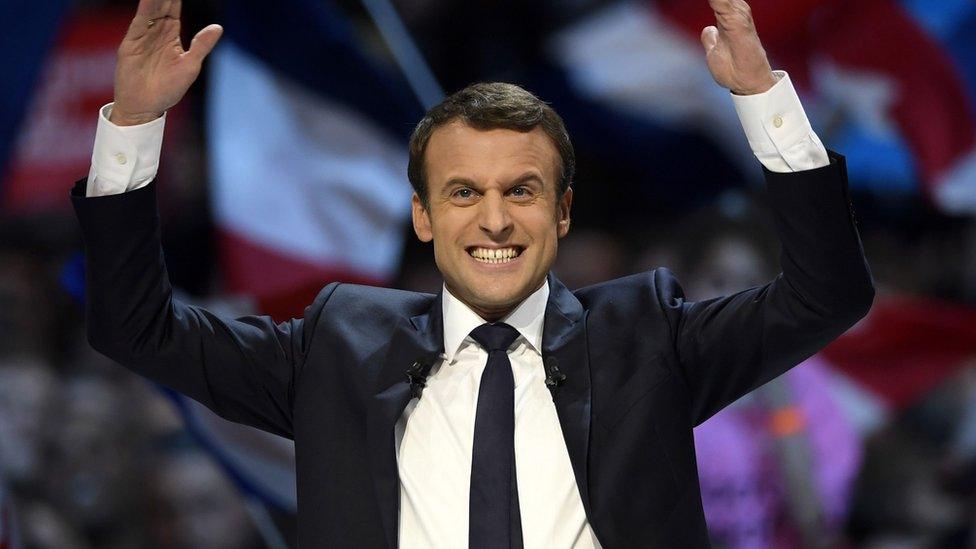
Mr Macron says he has someone in mind for prime minister
Emmanuel Macron has gone from political newcomer to French president in just a few years. He has promised a new approach to politics but what exactly will his government look like?
Two days before polling day, Emmanuel Macron let slip on French radio that he had someone in mind for prime minister should he win Sunday's vote.
He did not say who it was, simply tantalising listeners with a vague reference to "someone with experience of politics, and the skills to lead a parliamentary majority".
But such is the secrecy around his plan for government that it was enough to send the French papers into a spin.
It is a taboo subject even within his campaign team, according to the daily newspaper Le Monde. "It's like sailors who refuse to say the word 'rabbit' in case it brings bad luck," one unnamed staffer told the paper.
On one level, his reticence is understandable. Forming a government is a delicate business at the best of times and for Mr Macron it is delicate in ways previous presidents can only imagine.
Big beasts vs newcomers
First there is the tension between the poetry of campaign and the prose of government. It was Mr Macron's promise of renewal and change that won him his place in the Elysée Palace.
He has promised fresh faces from outside politics, an overhaul of the established political system and a new kind morality in political life.
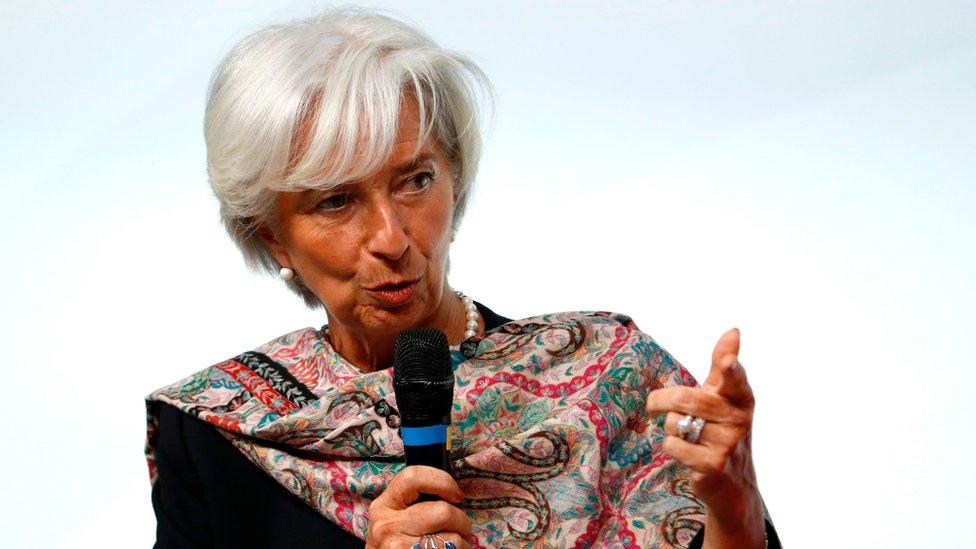
Could it be IMF head Christine Lagarde?
His En Marche (English: On The Move) movement has the feel of a start-up, with the average age said to be around 30. But he is also going to need experience, particularly in areas such as security.

Who to watch in Macron's team
Alexis Kohler, 43: Special adviser and likely to be Mr Macron's secretary general at the Elysée. Joined a shipping company after working as chief-of-staff for Mr Macron while in government
Brigitte Trogneux, 64: President-elect's wife initially helped rewrite his speeches but is said to seek role as a "bridge" to the president
Ismaël Emelien, 29: Right-hand man and longtime friend, head of communications and strategic adviser, ex-colleague in economy ministry
Jean Pisani-Ferry, 65: Economics professor and government adviser, in charge of Macron economic programme and big ideas. Founded Brussels-based Bruegel think tank
Sophie Gagnant-Ferracci, 40: Head of campaign team. Highly experienced corporate lawyer and longstanding friend of president-elect through her husband, economist Marc Ferracci
François Bayrou, 65: Political heavyweight, head of centrist Democratic Movement party; his backing boosted Macron candidacy in February

"The young technocrats that surround Macron are impatient for their go," says Pierre Haski, former deputy editor at the left-wing newspaper Libération.
"They think the oldies have made a mess of things… [but] Emmanuel Macron needs to find a balance between the traditional big beasts of the main parties and the newcomers. It can't just be the younger generation."
Balancing the expectations of sweeping change with the demands of government will not be easy, especially as he is likely to face a politically diverse cabinet - and probably a divided parliament too.
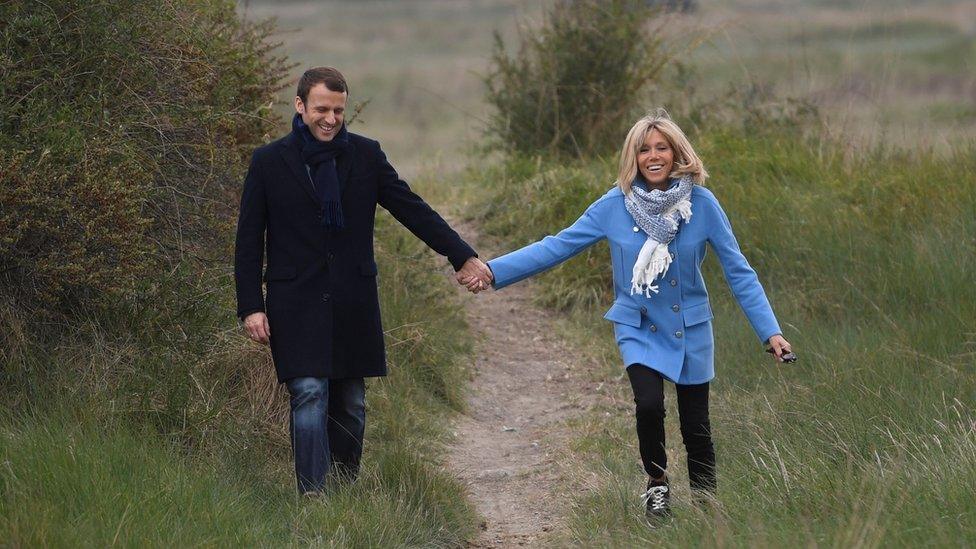
Brigitte Trogneux (R, with Mr Macron) is reportedly seeking a role in her husband's administration
And that is the second challenge for Mr Macron: the unique blend of left and right that he promised in his campaign means that his cabinet will need to contain not just a mix of fresh faces and old hands, but a mix of figures from the established right and left.
'Unprecedented territory'
There have been several high-profile figures from both sides who have backed him for president but until now his supporters have not had to sever their existing party memberships and some have already made it clear that voting for him as president is not the same as supporting his programme in government.
But lack of clarity has never left politics starved of speculation and since Mr Macron's hint on his pick for prime minister, there has been renewed interest in who might be given a position of power.
A poll published on Friday suggested that the head of the IMF and former Economy Minister, Christine Lagarde, would be the most popular choice for prime minister.
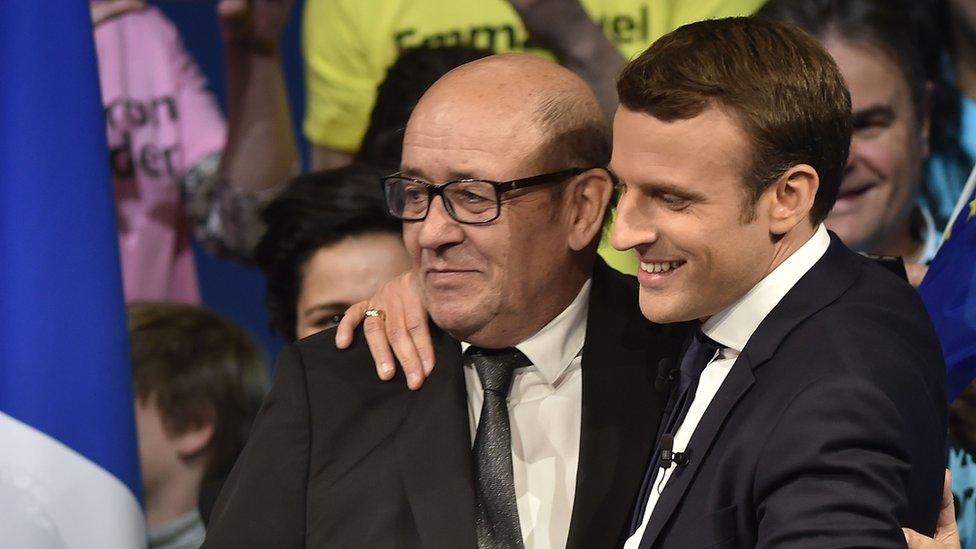
Defence Minister Yves Le Drian (L) has also been mooted as Mr Macron's pick for PM
Some analysts believe she is a good option for Mr Macron because, while she has experience of ministerial office, she has never actually been elected and so may qualify as part of his political renewal.
Other names that have cropped up include the current Defence Minister, Yves Le Drian. His appointment would be a "reassuring gesture", says Haski, and significant, given far-right National Front leader Marine Le Pen's attacks on Macron as soft on terrorism.
Further names touted for senior positions include the centrist François Bayrou and the MEP Sylvie Goulard.
But this is all unprecedented territory, says Haski. "We've never been through this before: a team created from scratch."
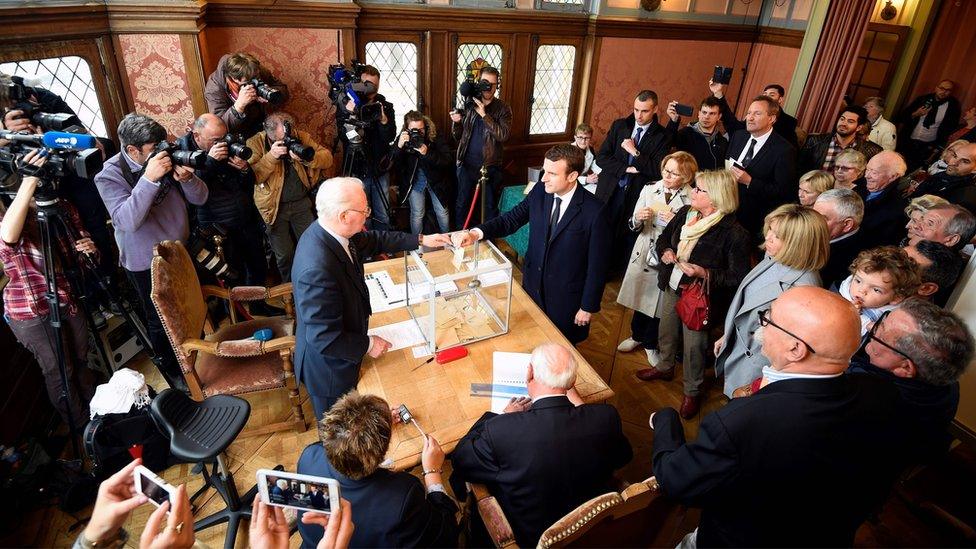
Mr Macron defeated Ms Le Pen in both rounds of voting
En Marche was only created a year before its leader was elected. And with no established party structure and no real campaign manager, responsibility was parcelled out to managers in different policy areas.
Frenetic activity
The only one who knows Mr Macron's mind, said one analyst, is probably his wife Brigitte Trogneux.
Many say she is unlikely to be given a prominent political role, even though she has played a key part in her husband's campaign. Their relationship has been controversial - 24 years his senior, Brigitte met her future husband when she taught him drama at school - and Mr Macron has been stern about politicians employing family members.
As if this was not amorphous enough, in a month's time the new president-elect will face another round of elections - for the French parliament. All 577 posts are up for election and En Marche! has vowed to run candidates in every seat.
An absolute majority would be a "political miracle", unexpected even by those close to Mr Macron such as mentor Alain Minc.
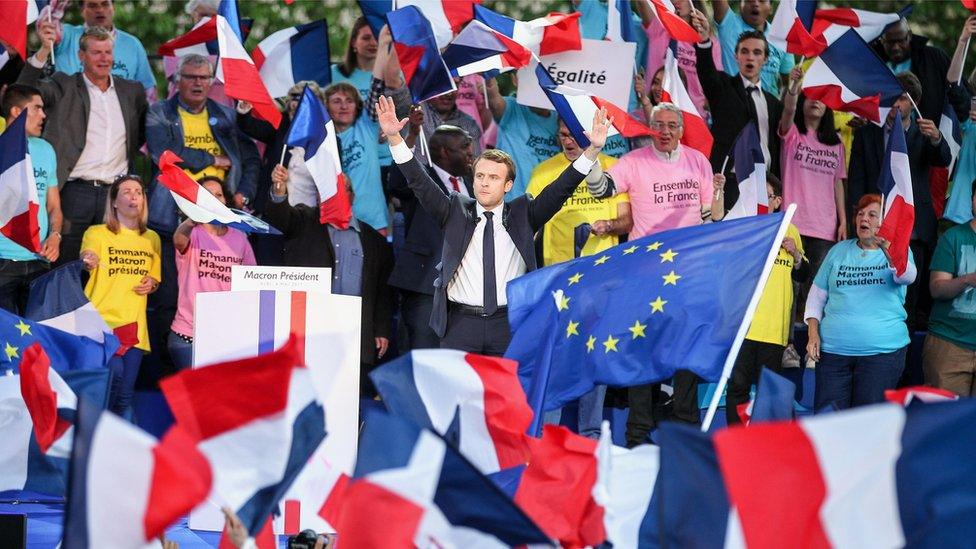
Mr Macron campaigned on a pro-EU platform
"They'll have to make a coalition," he told me. "I don't believe at all that he's able to have 280 MPs coming from En Marche with half of them beginning in politics and chosen from 14,000 CVs sent by email."
The result is that Emmanuel Macron may find governing very difficult. His experience as economy minister taught him that building cross-party consensus for each individual issue can be draining and dispiriting. Much will depend on whether En Marche can form a stable coalition to stand a chance of getting its reforms passed.
In that sense, the coming days will be a time of frenetic activity for Team Macron, as high-profile figures from both the centre-right Republicans and the centre-left Socialist Party absorb the scale of his win and the future direction of political power in France.
Some may leave their parties to join him - if there are enough of them, it could sign the death warrant for France's two main parties. But it is a fine balance for Mr Macron: he needs enough of them on board the boat to stabilise it, but too many and his political vision is sunk. Just do not mention the rabbit.